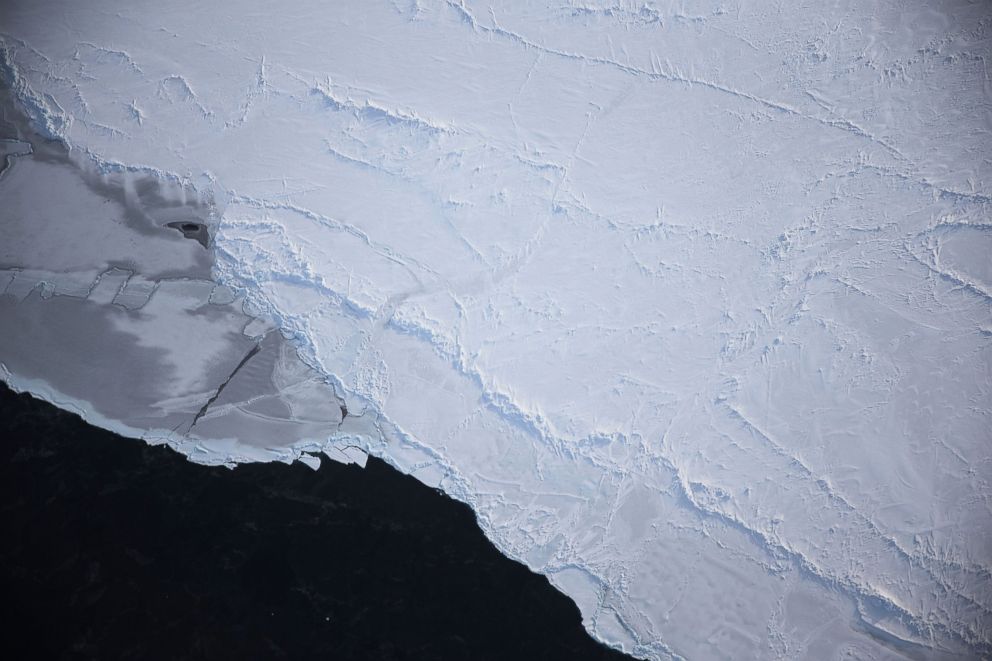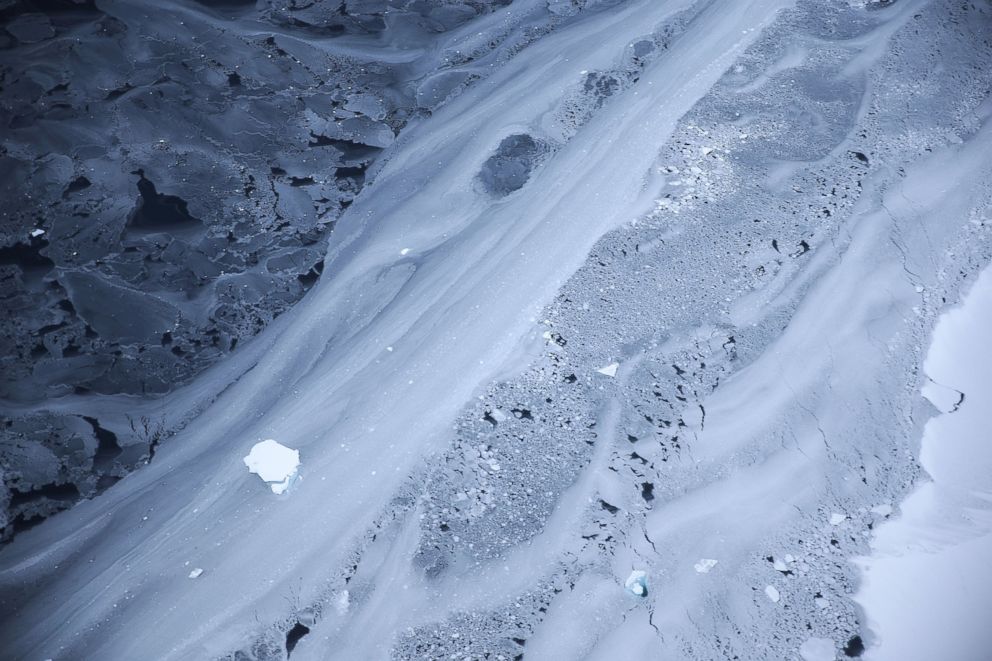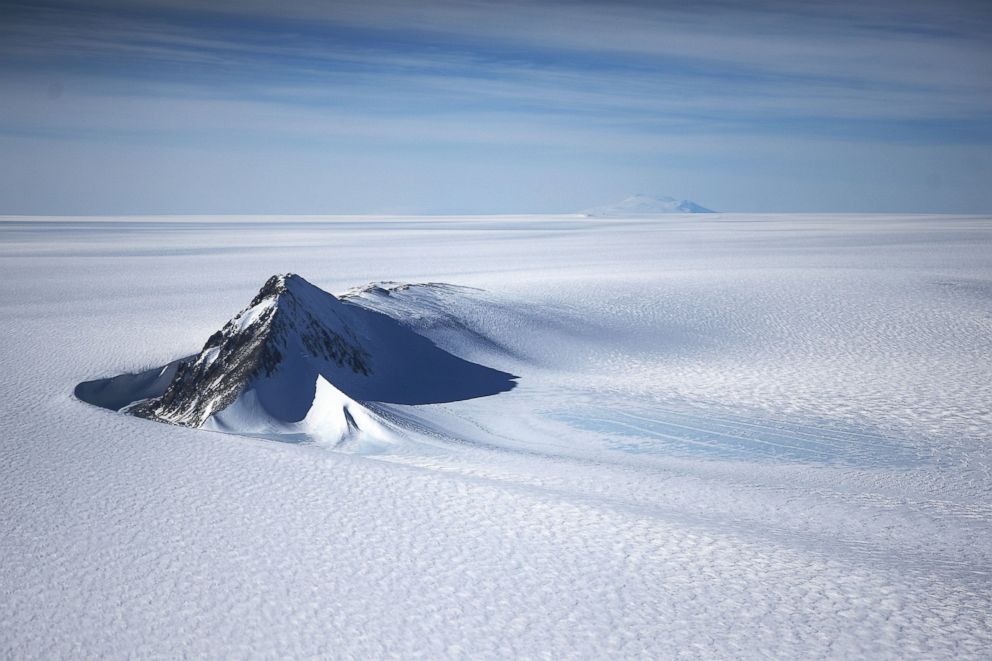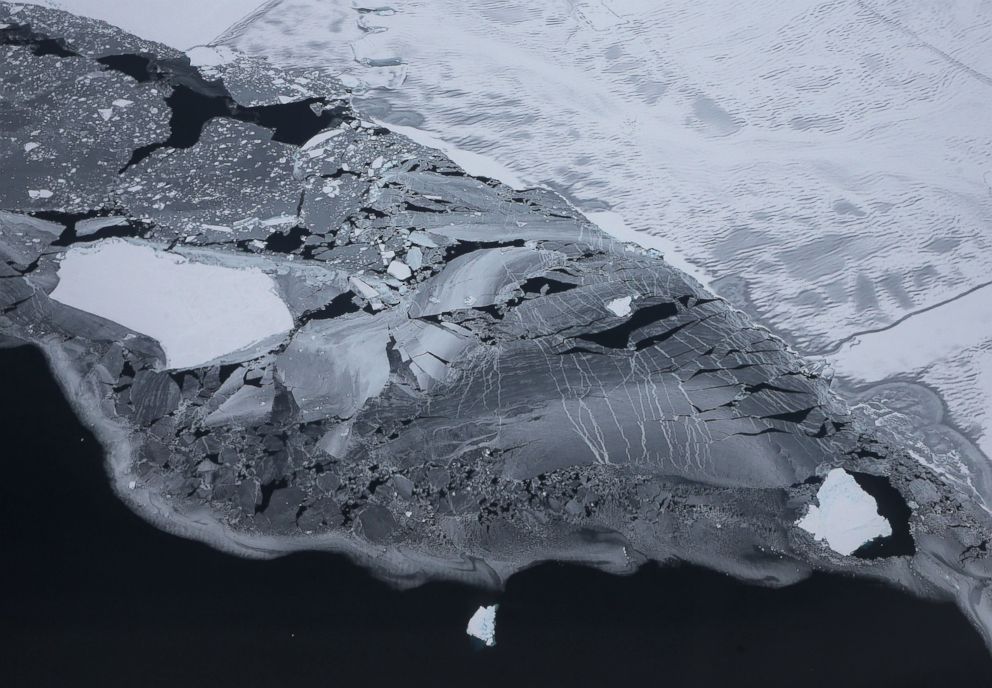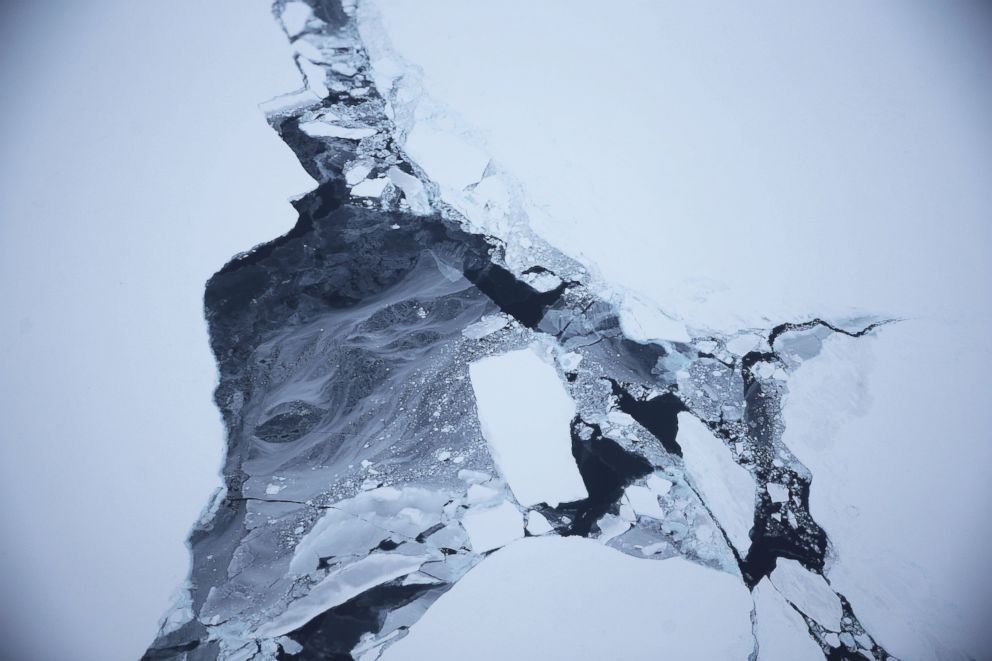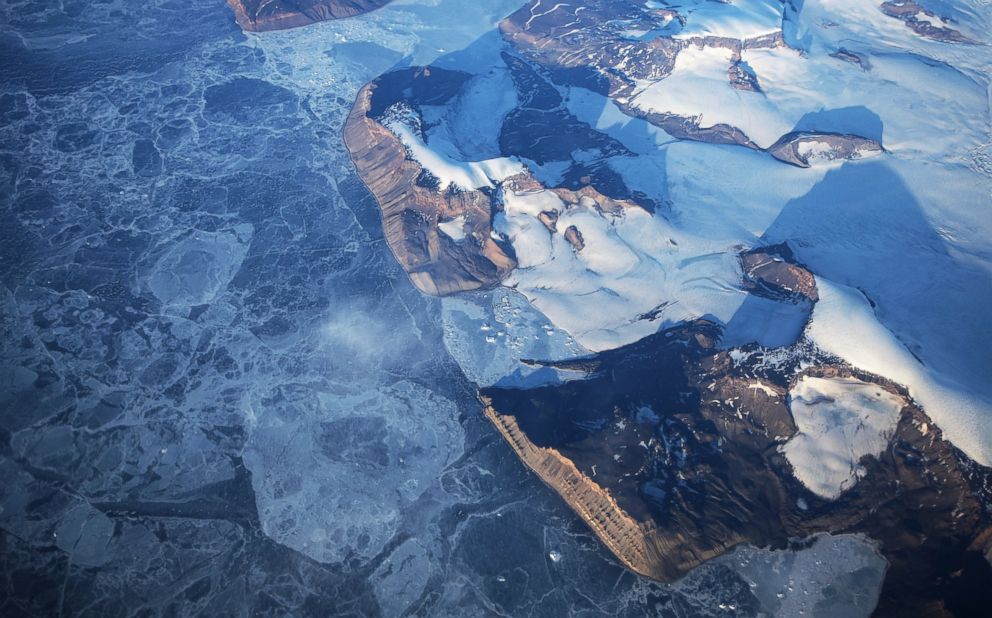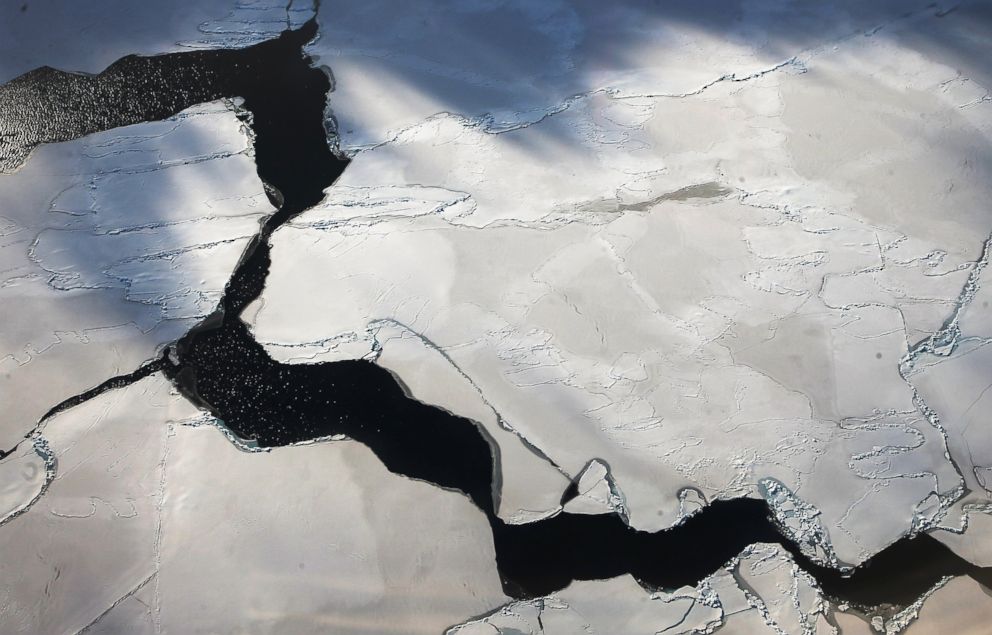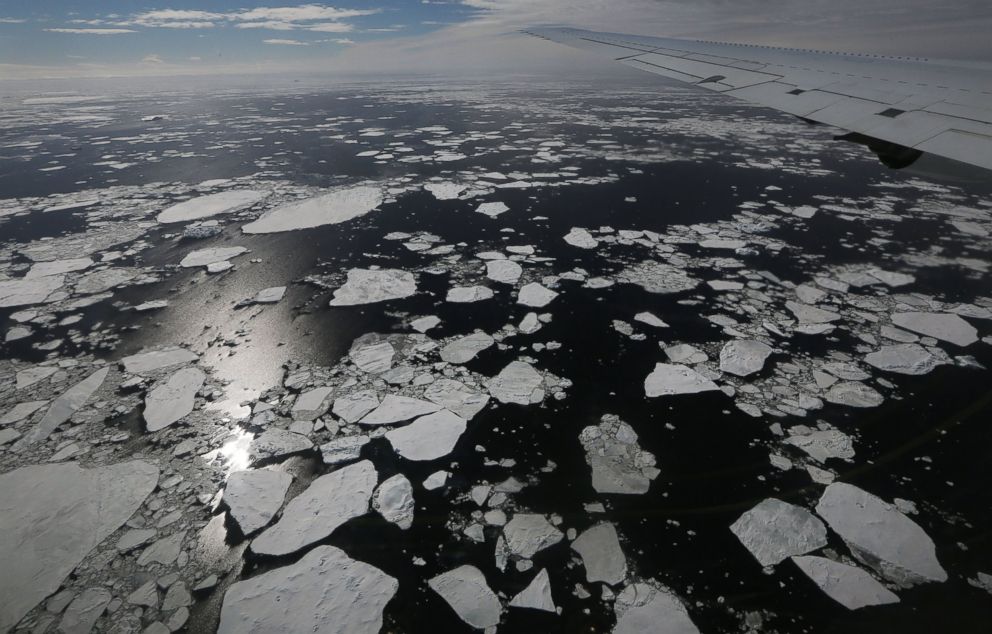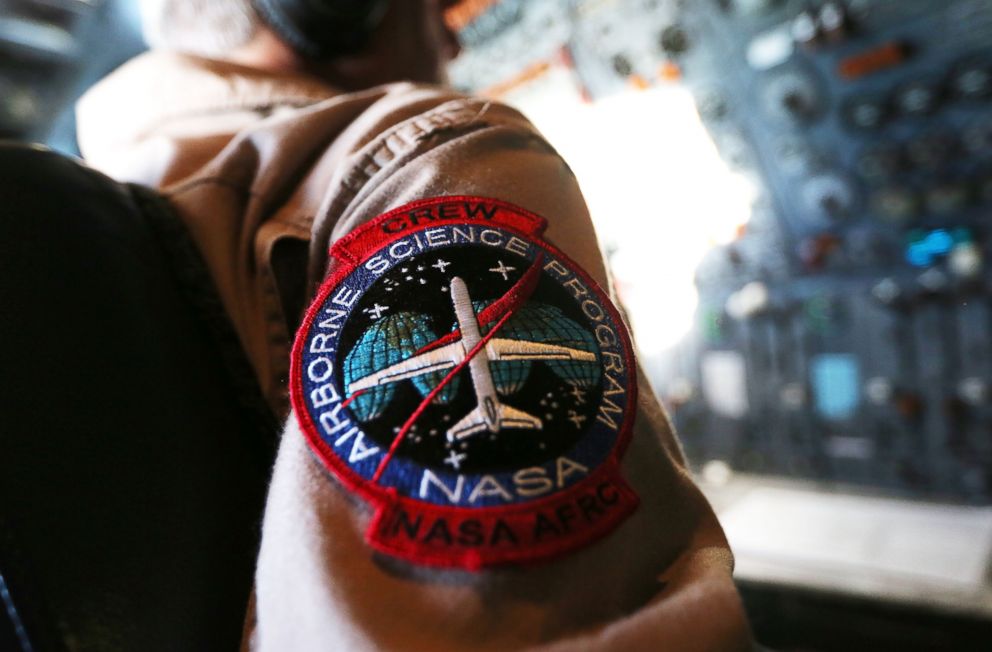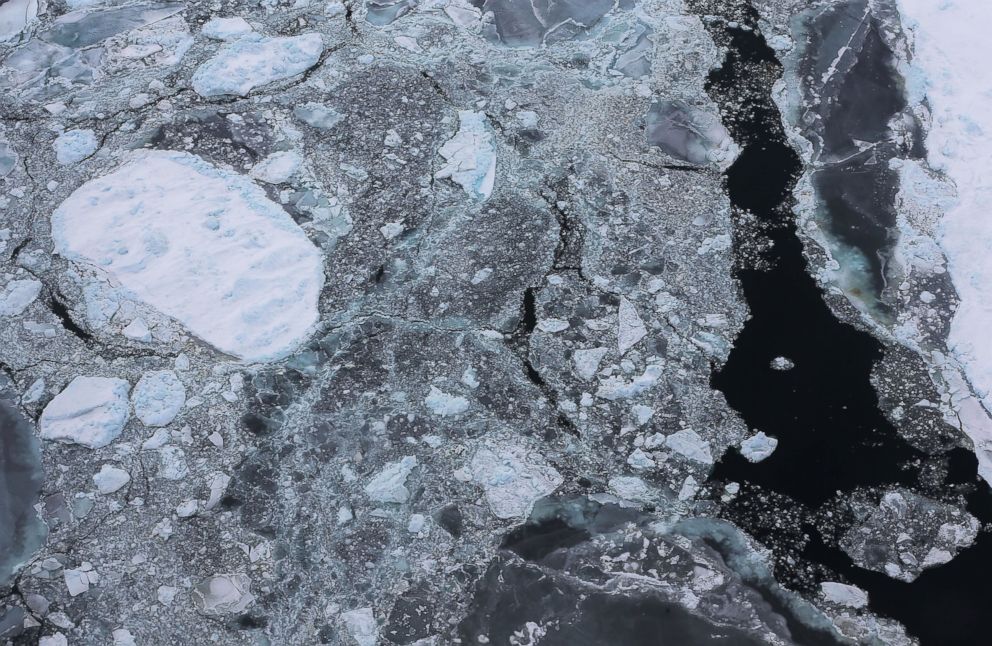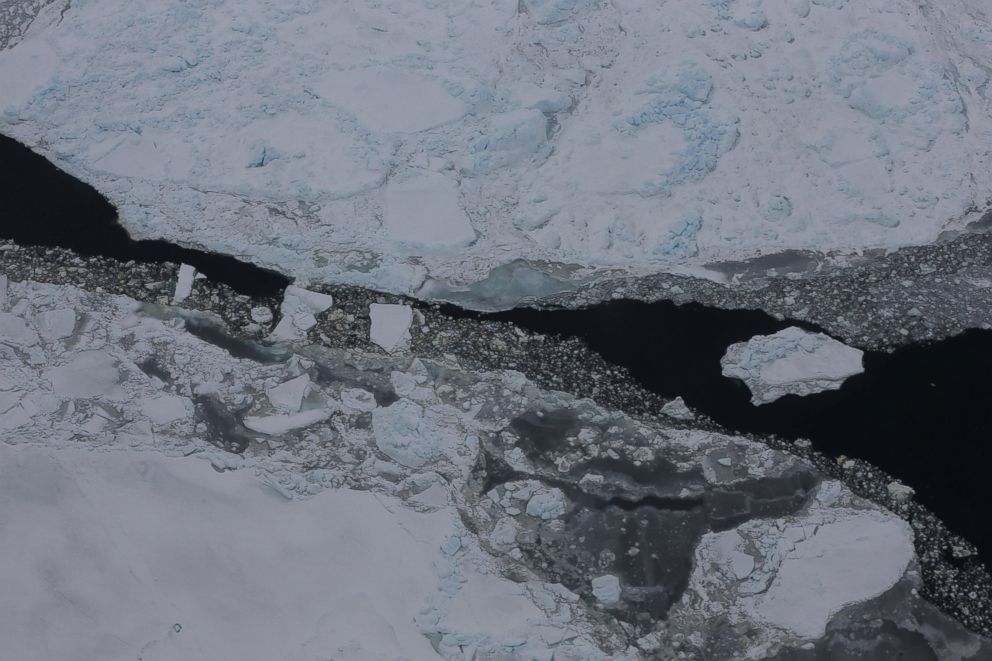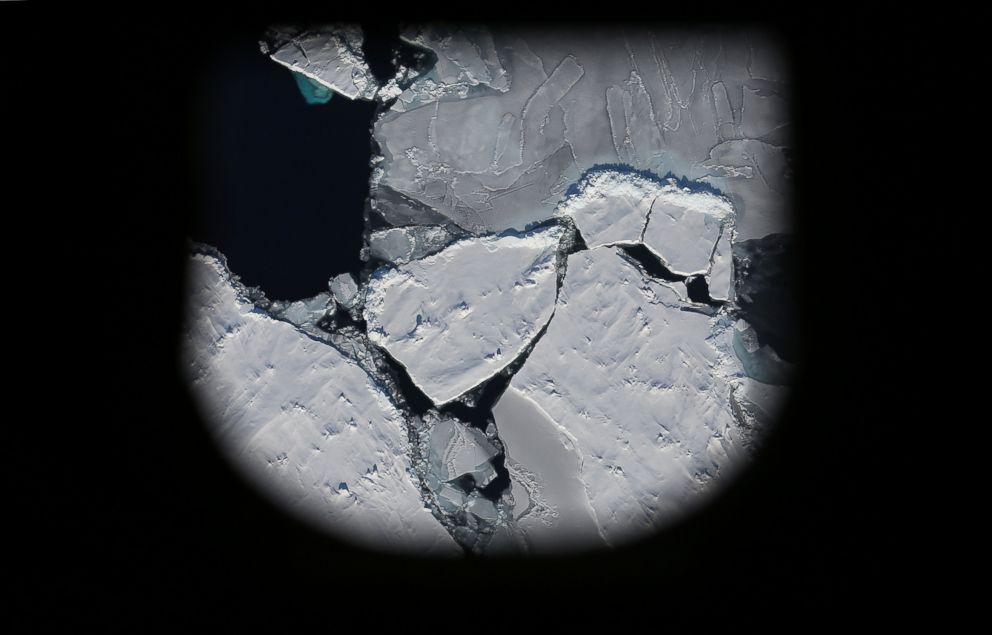NASA Data Shows 2016 Was Warmest Year on Record Globally
It was the third straight year to set a new record for global temperatures.
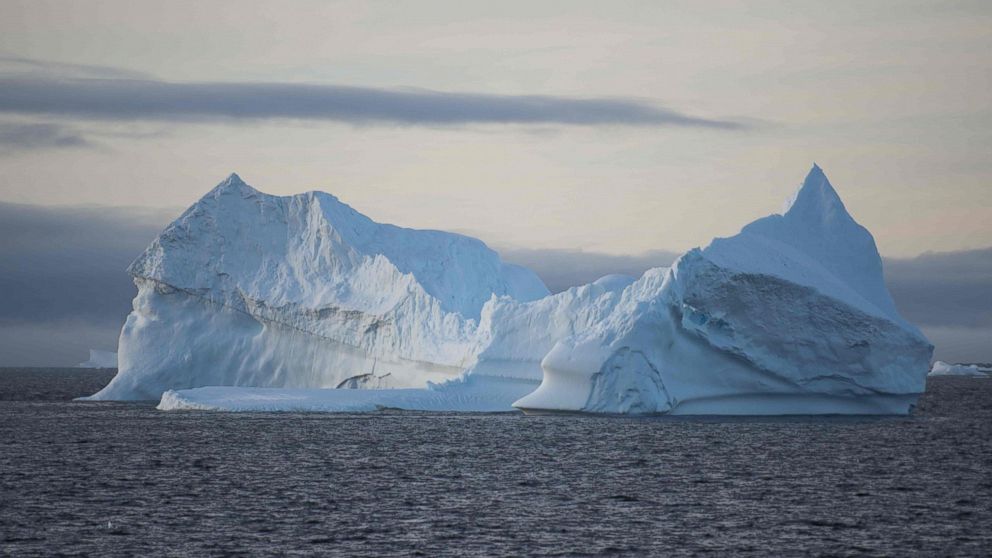
— -- Temperatures on Earth were the warmest in 2016 since modern record-keeping began in 1880, according to independent analyses by NASA and the National Oceanic and Atmospheric Administration, boosting the argument shared by many climate scientists that our planet is changing in significant ways.
The year 2016 was the third consecutive year to set a new record for global average surface temperatures, and far exceeded the temperature mark set in 2015, scientists said today.
Gavin Schmidt, director of NASA's Goddard Institute for Space Studies (GISS), said in a statement that the consistent pattern of record-breaking temperatures is indicative of a "warming trend" taking place on Earth.
Stunning aerial photos reveal evolving Antarctic landscape
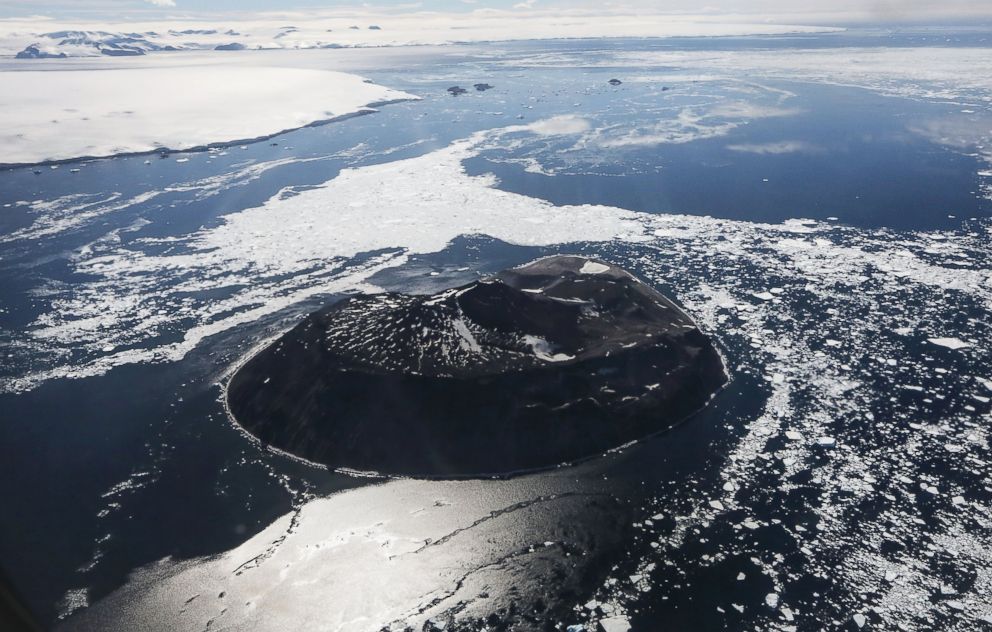
“2016 is remarkably the third record year in a row in this series,” Schmidt said. “We don't expect record years every year, but the ongoing long-term warming trend is clear.”
News of the record came as little surprise to those who followed news about last year's record-breaking global temperatures.
NOAA announced at several points in 2016 that individual months broke global temperature records.
News of record temperatures cropped up even at the very end of the year, when a major storm near Iceland produced 45-foot waves and pushed mild air into the Arctic region, causing temperatures to reach 32 degrees, according to ABC News meteorologists.
The heat wave experienced in the Arctic, which reached the region just before Christmas, was 50 degrees above normal.
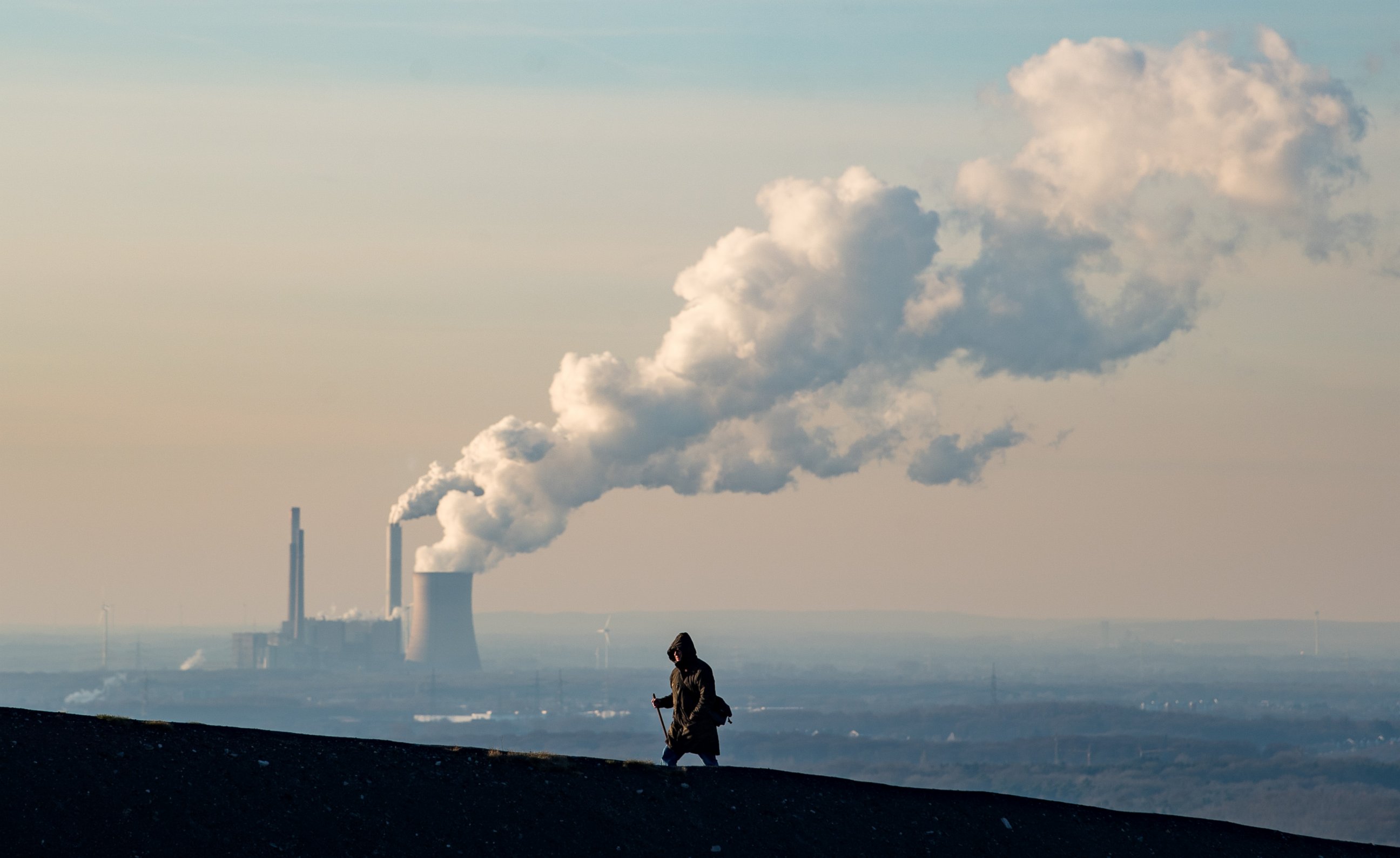
Climate Central, a nonprofit news organization that analyzes and reports on climate science, said at the time that the warming was part of an "unsettling trend" for the Arctic region, one they suggested was "being rapidly reshaped by climate change."
In December, ABC News also wrote about the Arctic Resilience Report, a study that suggested that the northernmost polar region characterized by cold winters and vast sheets of white ice is "undergoing rapid, sometimes turbulent change beyond anything previously experienced."
President-elect Donald Trump has cast doubt on the notion of climate change in the past, and his team has indicated that he could consider eliminating research on the subject by NASA in an effort to crack down on “politicized science.”
U.N. Secretary-General Ban Ki-moon has expressed confidence that Trump would change his approach to climate change after entering office.

"Mr. Trump will really hear and understand the seriousness and urgency of addressing climate change," he said.
In a meeting with The New York Times last year, Trump appeared to soften his tone on the subject by acknowledging "connectivity" between human activity and climate change.
"I think there is some connectivity," he said in the meeting.
Oklahoma Attorney General Scott Pruitt, President-elect Trump's choice to head the Environmental Protection Agency, testified before the Senate today, and told lawmakers that climate change is not a hoax. He also acknowledged that human activity is a contributing factor to the phenomenon.
"Science tells us that the climate is changing and that human activity in some manner impacts that change," Pruitt told the Senate Environment and Public Works Committee. "The ability to measure with precision the degree and extent of that impact and what to do about it are subject to continuing debate and dialogue, and well it should be."
